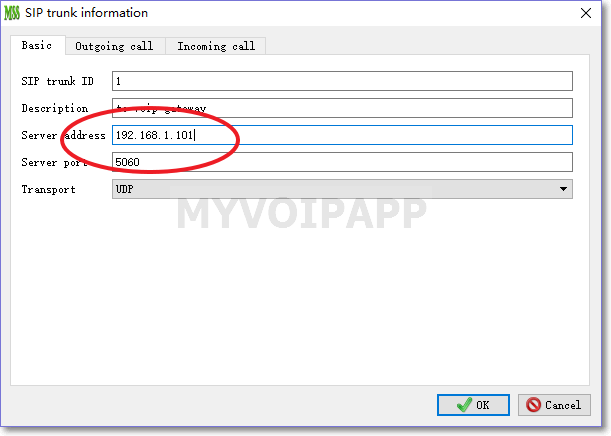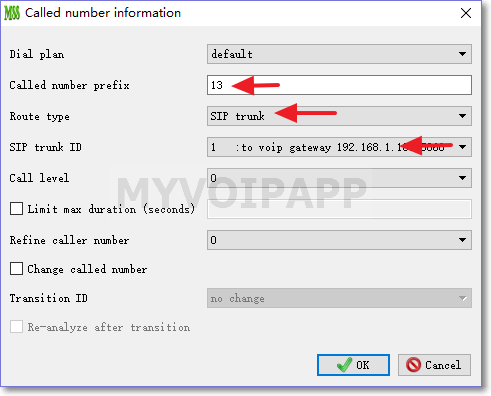"SIP trunk" is used to establish SIP connection between SIP servers, it is a "server-to-server" connection. For example, we can use "SIP trunk" to connect VoIP carriers' server, such as DID servers.

In normal, there are two kinds of SIP trunk:
One is required account and password for authorization. In miniSIPServer, we can configure "external line" to work with it.
Another is IP address authorization. That means each server should know IP address of peer side and trust SIP messages from it. This document is focus on this kind of trunk.
2.1 Incoming call
By default, miniSIPServer will reject all incoming calls if they are not from trusted domains, so we need configure peer IP address into miniSIPServer, then miniSIPServer can trust SIP calls from such address.
Please click menu 'Data / SIP trunk' to add a record. Following figure illustrate "SIP trunk" with a VoIP gateway.

In this configuration, the most important items are "server address" and "server port". miniSIPServer will trust such VoIP gateway and accept all its calls.
Please refer to manual document for more details about this configuration.
2.2 Outgoing call
Sometimes, we hope to make calls to outside users through SIP trunk. For example, we have a VoIP gateway connected with PSTN network, and we hope to dial "13xxxx" to make calls to outsides PSTN lines or mobile phones.
Please click menu 'Dial plan / Analyze called number' to add a record.

In this configuration, the 'route type' is 'SIP trunk' and 'SIP trunk ID' is configured at above section. With this configuration, when dial '13xxxx', the call will be routed to VoIP gateway whose IP address is '192.168.1.101'.
Q1: My VoIP provider has several servers,what should I do?
Well, you can add all their IP addresses into 'Data / SIP trunk' configuration. Then, you can configure 'routing group' feature to use them.